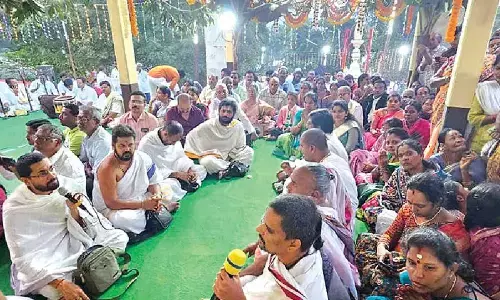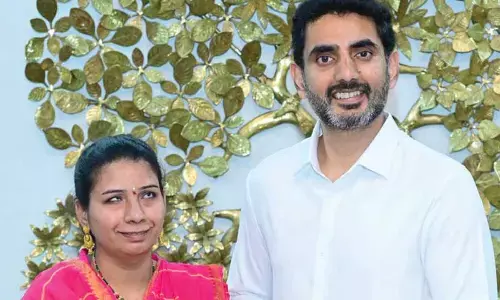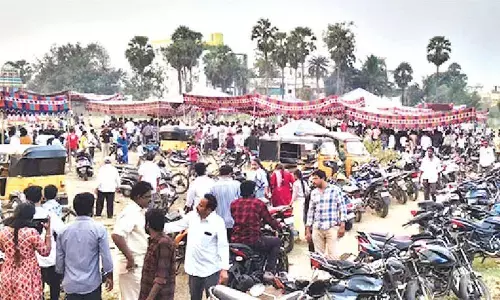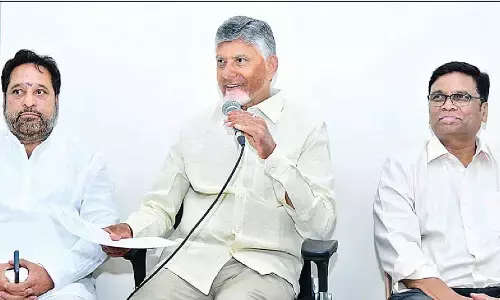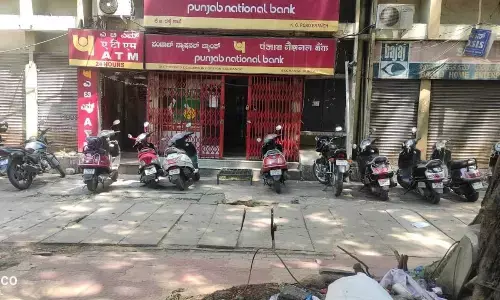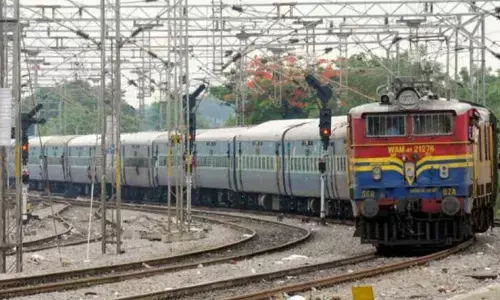Kremlin critic's extraordinary grit
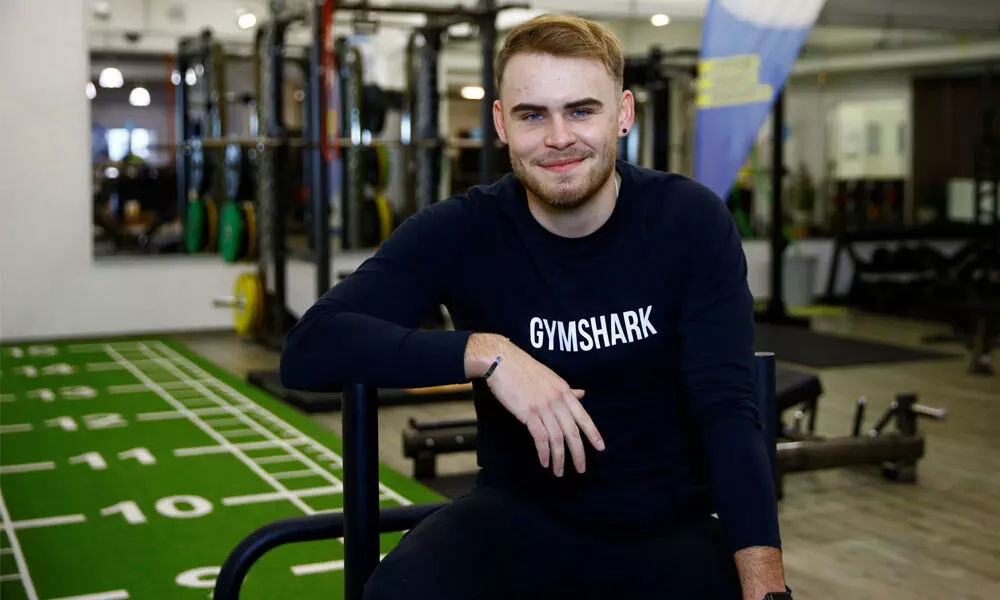
Kremlin critic’s extraordinary grit
Just over two weeks after his poisoning with a military-grade nerve agent in Siberia, Kremlin critic Alexei Navalny began to respond to the words of his wife Yulia and wake from a drug-induced coma.
As he emerged from what he would later describe as days of appalling hallucinations, he found himself in Berlin's Charite Hospital, where he had been evacuated for emergency treatment on August 22. He would later recount how he had to be lifted into a chair from his hospital bed and would sit with his mouth open, staring at a single spot on the wall.
In the months that followed, Navalny withdrew to a remote corner of the Black Forest. He used the time to drive himself back to physical fitness with intense workouts and take his war with President Vladimir Putin to a new level: targeting him directly, for the first time, with a video investigation into a lavish Black Sea palace.
On Jan 17, Navalny flew back to Moscow and was immediately arrested for alleged parole violations related to a suspended jail term in an embezzlement case he says was trumped up.
Fallout from Navalny's poisoning and arrest has convulsed Russia's relations with the West, already at a post-Cold War low, with Moscow raising the prospect of a rupture in ties with the European Union and the West weighing new sanctions.
Nationwide protests against Navalny's detention attracted tens of thousands of people in the depths of Russia's winter. But riot police hit back hard, detaining more than 11,000. Facing such a crackdown, it's unclear where Navalny's movement goes next. Some supporters worry it is losing momentum.
Putin, who makes a point of never uttering Navalny's name, has said Russian State security agents would have "finished the job" if they had wanted to kill Navalny. The Russian leader has said accusations that he ordered Navalny's murder are part of a U.S.-backed smear campaign targeted at him personally.
The Kremlin has even questioned whether Navalny was poisoned at all and queried his sanity. In hospital, Navalny chronicled his slow recovery by posting pictures on Instagram. An image of himself with his wife Yulia smiling, climbing a staircase to train his muscles, resting on a bench outside.
German police kept a watchful eye. Navalny noticed a police officer guarding him in his ward 24/7, he told Russian blogger Yuri Dud in an interview. The German state confirmed it provided protection for Navalny but appears to have paid for nothing else.
Other bills were picked up by wealthy Russian businessmen, most of them living outside their homeland having fallen out of favour with Russian authorities. These men don't all share the same political views, but they agree on one thing: Russia needs a genuine opposition to challenge a president who has been in power too long.
After his discharge from hospital, Navalny resurfaced in mid-October in the Black Forest village of Ibach, set in a high valley. Locals told Reuters he flew in late at night by helicopter.
Navalny moved with his wife and son into an apartment in an upscale complex with views towards the Swiss Alps. Armed police guarded their new home.
By early December, Navalny and his entourage moved to the old university town of Freiburg, near the French border. It was here that Navalny secretly worked on a feature length film with Vladimir Putin as its target. 'Putin's Palace' would allege that Putin is the owner of a sprawling estate on Russia's Black Sea coast.
It was released on YouTube on Jan. 19, two days after Navalny's arrest. The 112-minute film has since been watched at least 113 million times.
The central allegation - that the palatial residence had been built for Putin - had been reported before.
Publishing an investigation into Putin personally was something Navalny had been weighing for some time, people familiar with his thinking say. But he worried about the consequences.
"Alexei used to say that when we write about Putin, it will be our last investigation," said Ivan Zhdanov, a colleague. "But, of course, we will continue."
This shift in mood was noticed by Christo Grozev, lead investigator of British open-source news project Bellingcat. Grozev interacted with Navalny on another investigation, around the same time as the Putin palace expose, that identified Navalny's alleged poisoners as agents of Russia's FSB intelligence. The Kremlin has dismissed the report.
"He had a strong hypothesis that nobody in Russia would have access to Novichok," the chemical used to poison him, "without the consent of the Kremlin." Navalny shot and produced much of his video investigation about Putin at Black Forest Studios in the small town of Kirchzarten.
Navalny filmed segments elsewhere too. Notably in Dresden outside the apartment where Putin used to live when he worked for the KGB in the 1980s and in Berlin where Navalny visited the archives of the Stasi secret police to see Putin's identity card.
In mid-December, Navalny declared his poisoning case solved.
A few days later, he announced he had phoned up one of his would-be killers and tricked him into disclosing details of the murder plot, including that poison had been placed in Navalny's underpants. Reuters couldn't independently confirm his assertions.
Russian authorities dropped unambiguous hints that he would be jailed if he returned. These included a move by state investigators to open a new fraud case against Navalny, a charge he denies.
Some of Navalny's supporters hoped he would stay out of Russia, at least for a while, for his safety but they soon realised he was determined to return home as soon as possible.
Ashurkov, Navalny's friend in London, said he wanted to plant the idea that Navalny "has options, that he can engineer a life outside Russia for a while, that he would at least consider it." "But when I looked at him and talked to him and started reading what he was writing, I understood that returning to Russia was his sole aim and there was no talking to him about this." Navalny used Instagram to announce his planned return to Russia.
"It was never a question of whether to return or not. Simply because I never left. I ended up in Germany after arriving in an intensive care box for one reason: they tried to kill me," Navalny wrote. "Russia is my country, Moscow is my city and I miss it."
Having made his flight details public, Navalny was accompanied by a gaggle of journalists on the flight, with his wife, to Moscow. Before arriving, his plane was diverted to another of the city's airports to thwart his supporters who were waiting to greet him.
His arrest was swift. Four masked police officers intercepted him at passport control. Navalny, after kissing his wife Yulia on the cheek, walked away with them.
Two days later, Navalny's allies released their Putin palace video.
At least nine of Navalny's allies inside Russia were then detained one by one for what the authorities said were illegal calls for protests amid a pandemic. Some were put under house arrest, where they remain, cutting them off from the internet and their mobile phones. Others fled the country.
A couple of weeks later, a Moscow court jailed Navalny for nearly three years for parole violations, ignoring a Western outcry over his treatment and nationwide protests that had attracted tens of thousands in the middle of winter.
Aleksashenko, the former deputy Central Bank chairman, said it was debatable whether the timing of Navalny's return could have been any better. If Navalny had stayed in Germany, he said, six months from now "the Kremlin – and Kremlin media – would have said: Your team is in prison and you are hiding over there."
Leonid Volkov, Navalny's chief of staff, based in Lithuania, said the timing of Navalny's return was never in doubt.
In recent weeks, Russian State media have sought to remind Russians of Navalny's past flirtation with far-right groups. In videos from 2007, Navalny likened militants in Chechnya to cockroaches and espoused deporting migrants, saying, "We have the right to be Russian in Russia and we will defend that right."
In 2008, when a short war broke out between Russia and Georgia, he insulted Georgians, calling them rodents. He would later offer a qualified apology. Navalny has moved away from such rhetoric in the last decade. Allies say these early comments were an attempt to form a broad-based anti-Kremlin alliance, which meant engaging with hardcore nationalists too.
In the latest legal jousting, on Feb 20, a Moscow court found Navalny guilty of slandering a World War Two veteran. Navalny has said authorities are attempting to tarnish his reputation.
Navalny's supporters don't expect any rapid change in Russia. Aleksashenko, who helped pay for Navalny's treatment, believes only further mass protests can pose a real challenge to the Kremlin.
(With inputs from Anton Zverev, Catherine Belton and Andrew Osborn)








